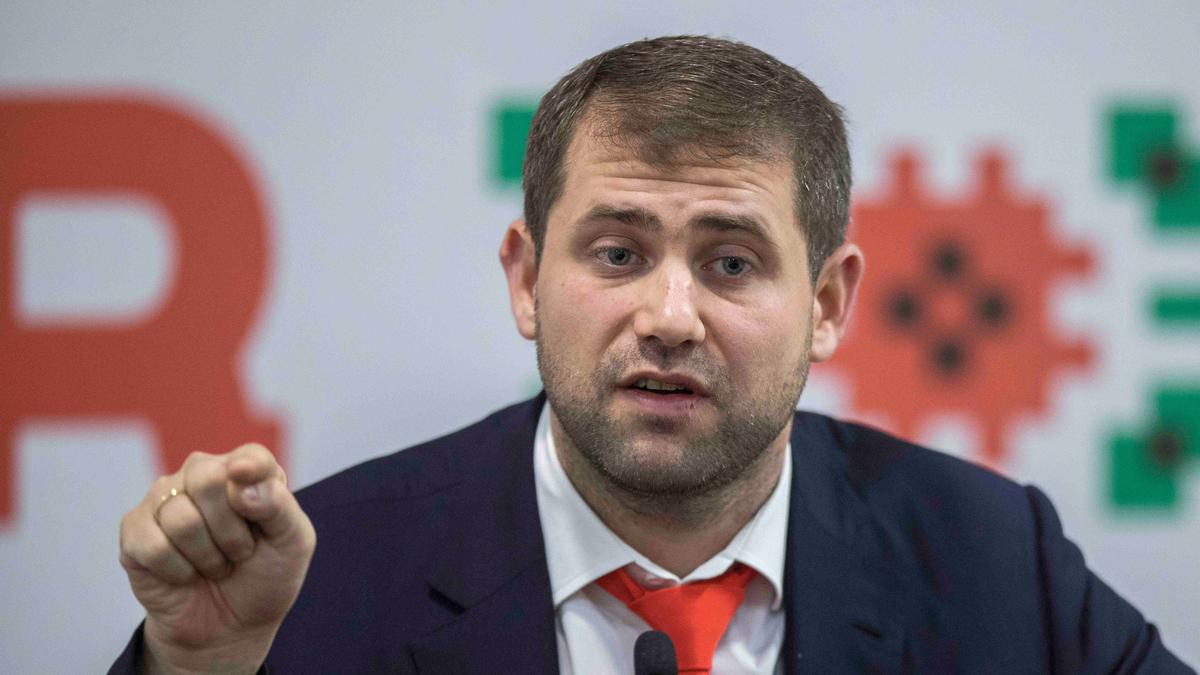Moldovan journalist and writer Paula Erizanu tells the story of Ilan Shor and his pro-Kremlin party that has been trying to destabilise the country and make profit off its citizens. With this story, Novaya Gazeta Europe kicks off a series of portraits featuring prominent, but not widely known, pro-Kremlin politicians in Europe.
Moldova’s capital Chisinau has seen significant anti-government protests since September of last year amid an energy crisis caused partly by the war in Ukraine. As Russia reduced gas supplies to the country over the past year, people’s energy bills went up sixfold and inflation reached 33%.
Moldova’s tough economic situation was an opportunity for some politicians to take advantage of the crisis and re-establish control over the country. The anti-government protests have been organised and supported, both ideologically and financially, by Moldovan oligarch Ilan Shor, known to have ties with Russia, and his eponymous party.
Despite his involvement with the protests, Shor himself cannot attend. In Moldova, he was sentenced to 15 years in prison on charges of fraud and money laundering. For that reason, he has had to oversee operations from Israel and delegate to trusted colleagues, namely the party vice president Marina Tauber, herself under investigation for accepting illicit funds from a criminal organisation and forging party reports.
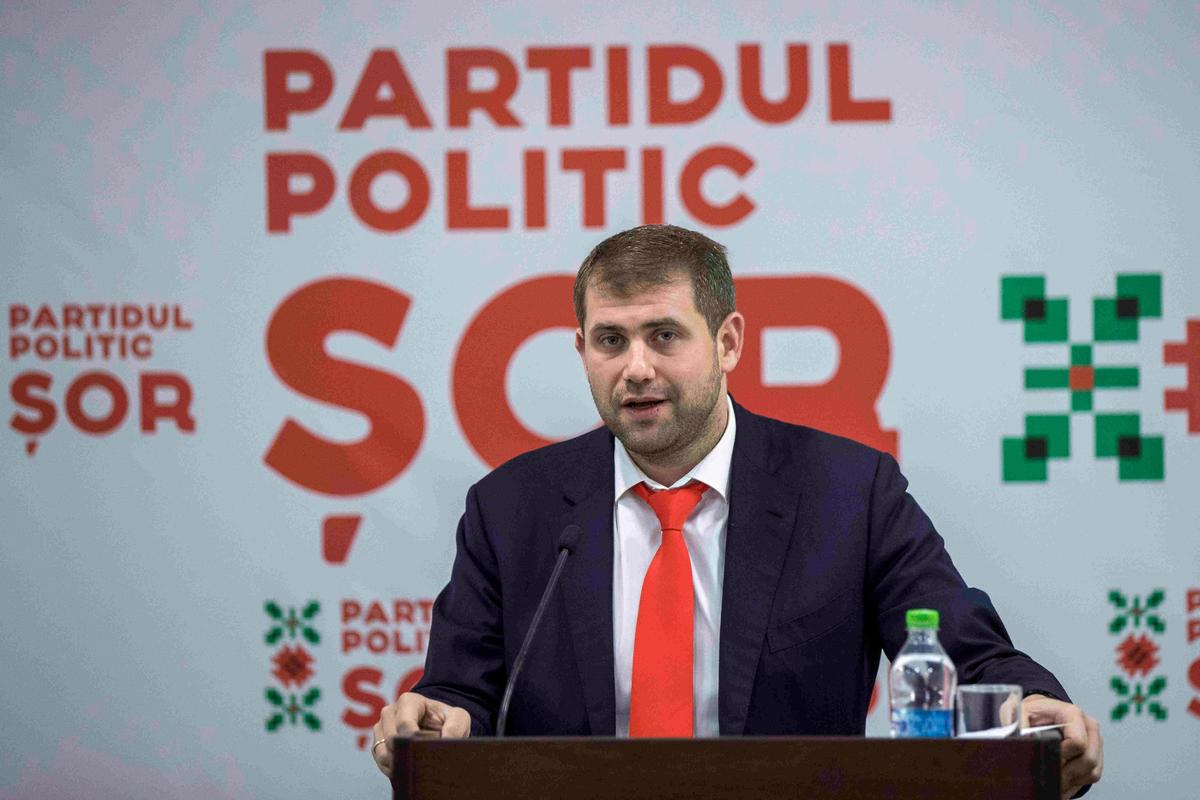
Moldovan parliamentary candidate, Shor Party leader, Ilan Shor. Photo: EPA-EFE / DUMITRU DORU
Husband, playboy, fraudster
At Moldova’s anti-government protests on 18 September, a man appears on an LED TV set, being carried on people’s shoulders like an icon. He is young, chubby-cheeked and has green eyes. He tells people he loves them and that he will come back soon, reminiscent of either Donald Trump or the Jesus in Jehovah’s Witnesses literature. His name is Ilan Shor and he is on TV because he is in Israel, under US and EU sanctions, evading a 15-year sentence for his part in a bank fraud that stripped Moldova of 12% of its GDP.
Ilan was born in Tel Aviv in 1987, the son of Moldovan businessman Miron Shor. Second in charge at the Russian-language A.P. Chekhov Theatre in Chisinau, Miron Shor emigrated to Israel in the 1970s, where he opened several businesses and went into politics to represent Jews coming from the former USSR. He also ran a business in Bulgaria. In the early 90s, the family returned to Moldova. By 1994, Miron Shor owned multiple businesses, all part of ShorHolding. He founded the Rotary Club branch in Moldova and organised fashion shows and art exhibitions.
Margareta Tzvik, a family friend, recalls how Miron would talk to his business partners, and then turn to Ilan, aged seven, and ask “Do you agree?”
Tzvik was more than just a family friend. She used to be second in charge of Sputnik Moldova and Ilan Shor’s TV channels TV6 and Orhei TV, both now suspended. “I never stopped him doing anything,” Miron told Tzvik of his son. By the time Ilan was 16-17, he was attending all negotiations with Miron, family friends say. When Miron died in 2005, Ilan took over his companies. He was 18 years old.
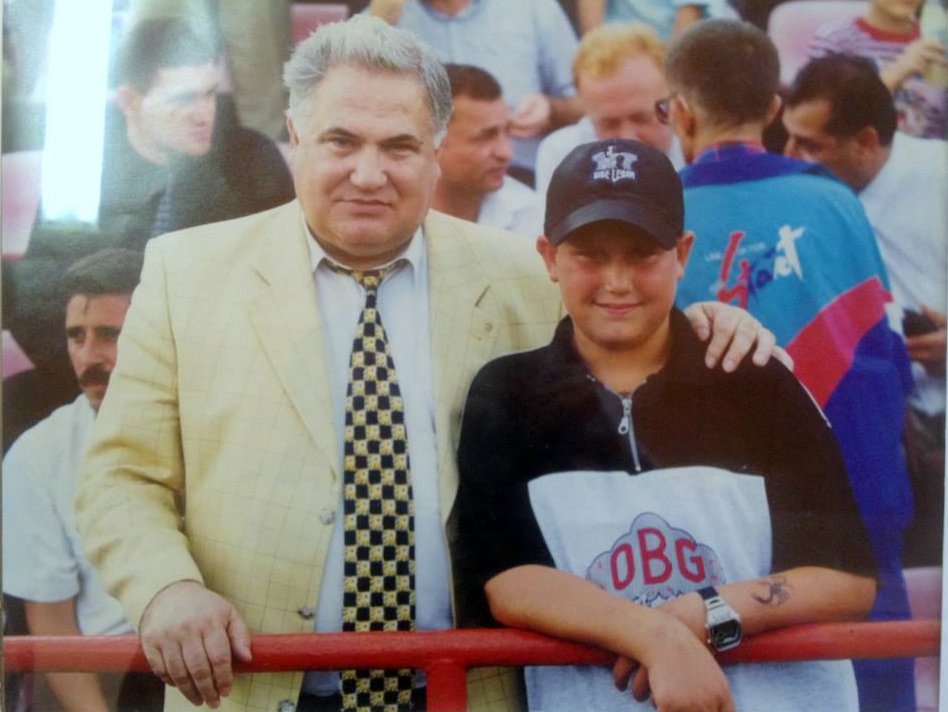
Miron Shor with his son, Ilan. Photo: Facebook
“When Miron died, he left many influential friends behind,” said someone from the Shors’ intimate circle who wished to remain anonymous. “They all wanted to help Ilan, whom they’d known since he was a child. Miron was a modest man, his office was in a regular hotel with squeaky floors. ... What his father hid, Ilan showed off.”
With his inherited money, and clandestine acquisitions of property from the Moldovan Confederation of Trade Unions, Ilan soon became a regular in glamorous clubs, surrounded by security guards. He borrowed hundreds of thousands of dollars from wealthy friends to organise lavish birthday parties or buy a red Ferrari from his friend, Gabriel Stati, the son of Anatol Stati, one of the wealthiest people in Moldova. According to Shor, he first met Moldova’s future Prime Minister Vlad Filat in a Chisinau night club in 2008. At this point, Shor was still only known in business circles.
The wider public learned about Ilan Shor when the media covered his wedding to Russian pop star Jasmin in 2011, when he was 24. The event was held at The Palace of the Republic, where the Moldovan Parliament sat at the time. The bonanza was deemed “The Wedding of the Year” and was attended by several Moldovan presidents, including Petru Lucinschi, Vladimir Voronin, Igor Dodon, and by MPs from across the political spectrum, and celebrities, such as Russian singers Nikolay Baskov and Filipp Kirkorov. Dodon told the press it was one of the most beautiful weddings he had ever attended.
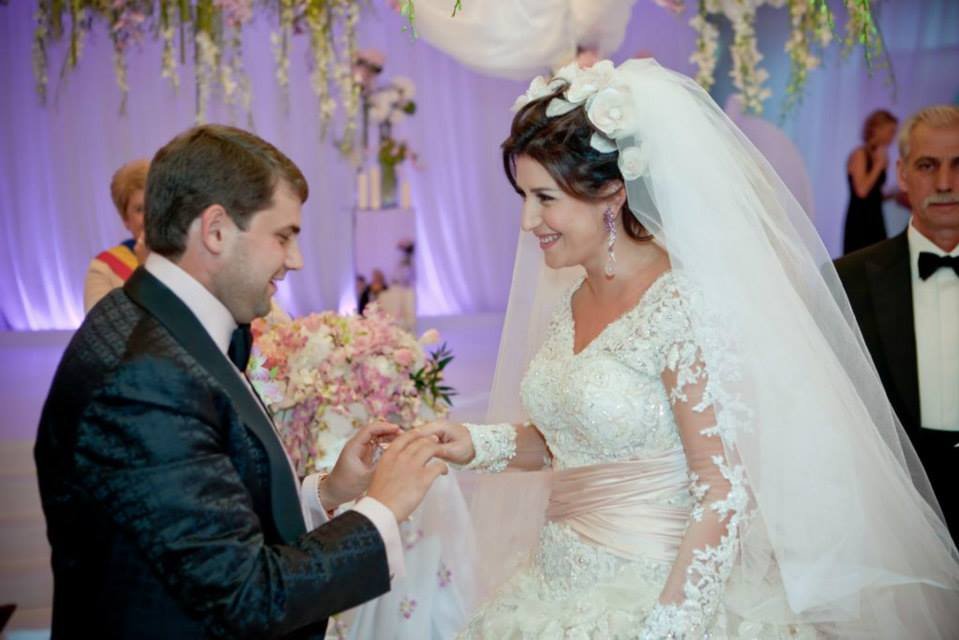
Ilan Shor and Jasmin. Photo: Facebook
Between 2009 and 2019, a series of pro-European coalitions led Moldova, culminating with the 2014 Association Agreement with the EU, which dropped the visa regime for Moldovan citizens. (Ukraine did not sign the agreement, sparking the Euromaidan protests.)
But behind the scenes, some of the country’s greatest corruption schemes were taking place: the airport concession and the billion-dollar bank fraud scandal.
The airport
In 2013, while Vlad Filat was Prime Minister of Moldova, Chisinau Airport was controversially ceded to newly founded Russian-owned company Avia Invest for 49 years. The company was officially meant to inject foreign investment into airport infrastructure. But in fact, the only money invested in the airport came from the profits made from running it. Moreover, some of the profits went to companies owned by Shor. In late 2022, an arbitration court in Stockholm decided that the airport should go back into state ownership — which it did.
Shor then turned to destabilising the aviation sector in the country with Air Moldova. According to investigations by deschide.md and TV8, at the time of its privatisation in 2018, Air Moldova boasted business revenues of $150 million and eight planes, two of which it owned and six it rented, and covered half of the flights to and from Moldova. Air Moldova was then controlled by Shor via several companies, until it suspended operations in May.
But let’s go back to what made Shor famous in Moldova: the billion-dollar theft.
The billion dollar theft and Shor’s first steps into politics
According to prosecutors, the scheme consisted of taking non-performing loans from three of Moldova’s biggest banks from 2012 to 2014, Banca de Economii, UniBank and Banca Socială, and taking them out of the country through Latvian banks and new offshore and limited companies in Malta, the UK, New Zealand, Hong Kong, eventually landing in Russia. VEB, whose board was led by Russia’s former president Dmitry Medvedev, owned 24% of shares at Banca de Economii. One billion dollars was taken from state reserves between 2014 and 2015 to save the banks through bailouts. But the banks went bankrupt anyway, which makes some wonder whether the bailout scheme was just the second stage of the billion-dollar theft. In 2016, the stolen billion was converted into state debt, to be paid back via tax payments until approximately 2041.)
Andrian Candu, the speaker of Parliament and the godson of oligarch Vladimir Plahotniuc, who now falls under US sanctions, published a report on the theft on his blog on 5 May 2015, supposedly written by the Kroll investigative company. According to the report — which many think was modified for political purposes — Shor appeared as the main beneficiary of the scheme. As head of the Administration Council at Banca de Economii, Shor was placed under house arrest the next day for abuse of office, while the government became a minority share owner, having previously held the majority stake.
Shor declared he was entering politics a week later. This is how he escaped house arrest. He took over the Ravnopravie (Equality) party from Valerii Klimenco, a Russian-born journalist who infamously said “Moldova can only be maintained within the borders of Russia”. Shor renamed the party after himself. By 15 June, he had been elected mayor of Orhei, a town in central Moldova, vowing to transform it into Monaco. He also swore to repair all roads and provide free public transport and Wi-Fi, all on his dime.
A few months later, on 13 October 2015, Shor made public that he had paid former Prime Minister Vlad Filat $250 million dollars over five years for various services, such as selling petrol tax-free on the border. He said they were partners in crime in the billion-dollar theft. Filat was arrested two days later. Shor also testified against Veaceslav Platon but not Vladimir Plahotniuc. Following Shor’s incriminations, Platon, who was in Kyiv at the time, was arrested in the summer of 2016 and extradited to Moldova. Like Filat, Platon, who is seen as the mastermind behind the so-called Russian laundromat, spent four years in prison. He was released in 2020. The arrests paved the way for Vladimir Plahotniuc’s dictatorial rule between 2016 and 2019. People from Filat’s circles say that Shor’s claims were part of Plahotniuc’s scheme to rid himself of his main competitors. They also claim this was a means to distract the public and judiciary from his ensuing corruption schemes that took a billion dollars out of state reserves.
After the general elections in 2019, an unlikely coalition was formed between the pro-European ACUM bloc of Maia Sandu’s Party of Action and Solidarity (PAS) and Andrei Năstase's Platforma DA party, and the pro-Russian PSRM party, led by Igor Dodon, in order to oust Vlad Plahotniuc from power. A parliamentary commission investigating the billion-dollar theft concluded that the main beneficiaries in the scheme were Plahotniuc, who took the lion’s share, then Vlad Filat, and finally Ilan Shor and his allies.
Following the change in the national political landscape, both Plahotniuc and Shor left Moldova illegally in 2019. Platon fled to London in 2021. Shor is now living in a luxury villa in Israel, while leading anti-government protests across Moldova.
Marina Tauber: Shor’s accomplice
Marina Tauber, who is also sanctioned by the EU, was one of the people mentioned in the Kroll report, which revealed some of the mechanisms used to transfer the stolen billion dollars out of Moldova. According to the report, Tauber received three transfers of approximately $1.5 million, which she used to buy 4.6% of Unibank shares. While Shor is in Israel, Tauber serves as the leader of the Shor party in Moldova. “We are starving to death, while they have millions,” she shouted into the megaphone at demonstrations, holding several late-generation iPhones in her hand, all in violation of her house arrest.
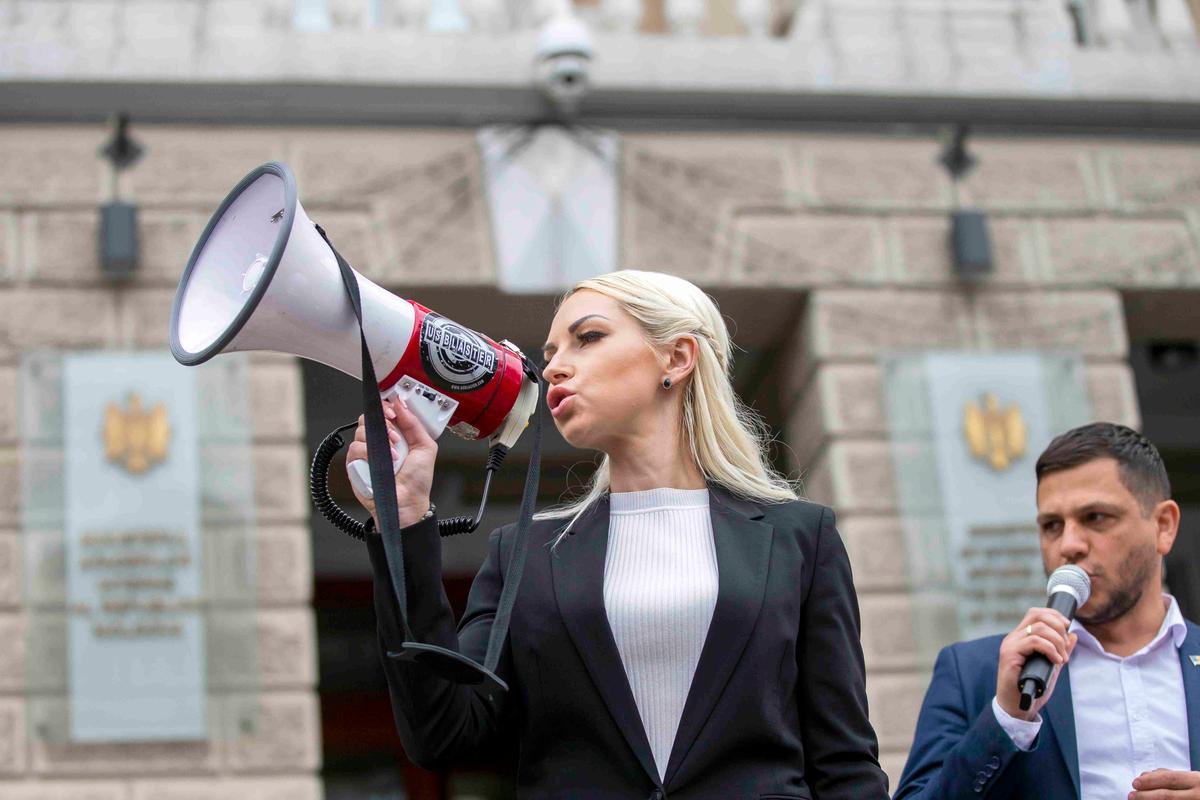
Shor Party Deputy Marina Tauber. Photo: EPA-EFE / DUMITRU DORU
Tauber studied at Logica, a Chisinau high school founded by Ilan Shor’s father. Aspiring to become a professional tennis player, Tauber graduated from Moldova’s State University with a Physical Education and Sport degree in 2011, having studied there for eight year, instead of the usual five. In 2007, she started to work as a tennis coach. In 2010, she joined the Moldovan Tennis Federation as development manager and second in charge. In 2011, the director of the Federation, Igor Țurcan, who owned construction and tobacco businesses, died in hospital after a car with Russian plates exploded in front of him as he came out of his office at the Moldovan Tennis Federation in the centre of Chisinau. Tauber then became head of the federation. The prosecutors have not found the assassins to this day. Three months before his death, Țurcan mentioned “everything that had happened in the field of tennis in the past few years concerned the plot of land of the Specialised Tennis School” and promised that “under no circumstances would he let this plot of land be taken”. Tauber led the school from 2015 to 2017.
By 2016, Tauber had already joined Ilan Shor’s political project, becoming the party’s vice president. In 2018, she became mayor of the village of Jora de Jos. According to the NGO Promo-LEX, Tauber exceeded the legal budget by more than three times. But the Court of Appeal in Chisinau rejected a request to investigate the case. Tauber attacked two journalists with a broom during a protest rally in 2018. In 2019, she was elected to Parliament, leaving her local seat behind. In 2022 she temporarily lost legal immunity and was placed under house arrest for her involvement in the billion-dollar theft.
She lost her immunity once again last month, while being investigated for accepting illicit party funds from a criminal organisation and forging party reports. She pleaded not guilty.
The Shor Party governed the country in an informal coalition with the Socialists for a few months in 2020.
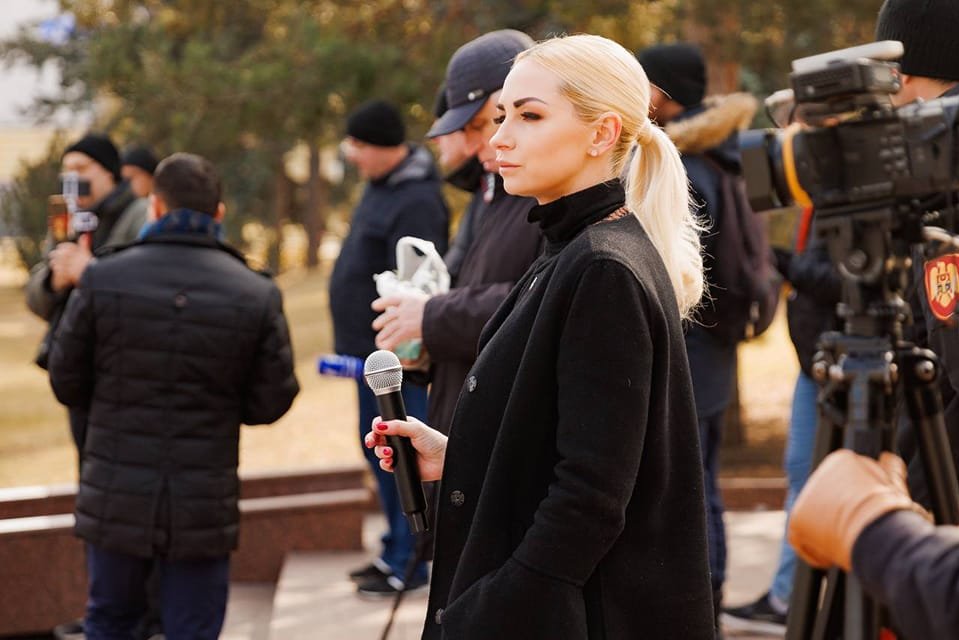
Marina Tauber. Photo: Facebook
Dinu Țurcanu: new protest leader
Perhaps the most surprising Shor member is Dinu Țurcanu, 42, the head of the Orhei district, who joined the Shor party in 2019, in a political U-turn. Ten years earlier, in 2009, Țurcanu was one of the so-called “seven magnificent” youngsters meant to relaunch the Christian Democratic People's Party (PPCD), which had gained a following thanks to their commitment to the reunification of Moldova and Romania, but fell out of grace with their own electorate after they formed a coalition with the pro-Russian Communist Party from 2007 to 2009.
PPCD didn’t get any parliamentary seats in the two 2009 elections. More recently, Iurie Roșca, the leader of PPCD throughout the 90s and the 2000s, joined Sputnik Moldova, promoting pro-Putin, anti-vaxxer and anti-Ukraine messages.
Țurcanu — a graduate of NATO studies at the National School of Advanced Political and Administrative Studies in Bucharest — had been a consultant to Roșca while he was Deputy Speaker in parliament in coalition with the Communists. In 2010, Țurcanu presented himself as number two in the PPCD hierarchy. After his 2009 and 2010 attempts failed, he campaigned to become a PPCD MP once again in 2014, but to no avail. Then he withdrew from politics until joining Shor in 2019. In 2022, Țurcanu was named an “anti-government protest leader” by Shor.
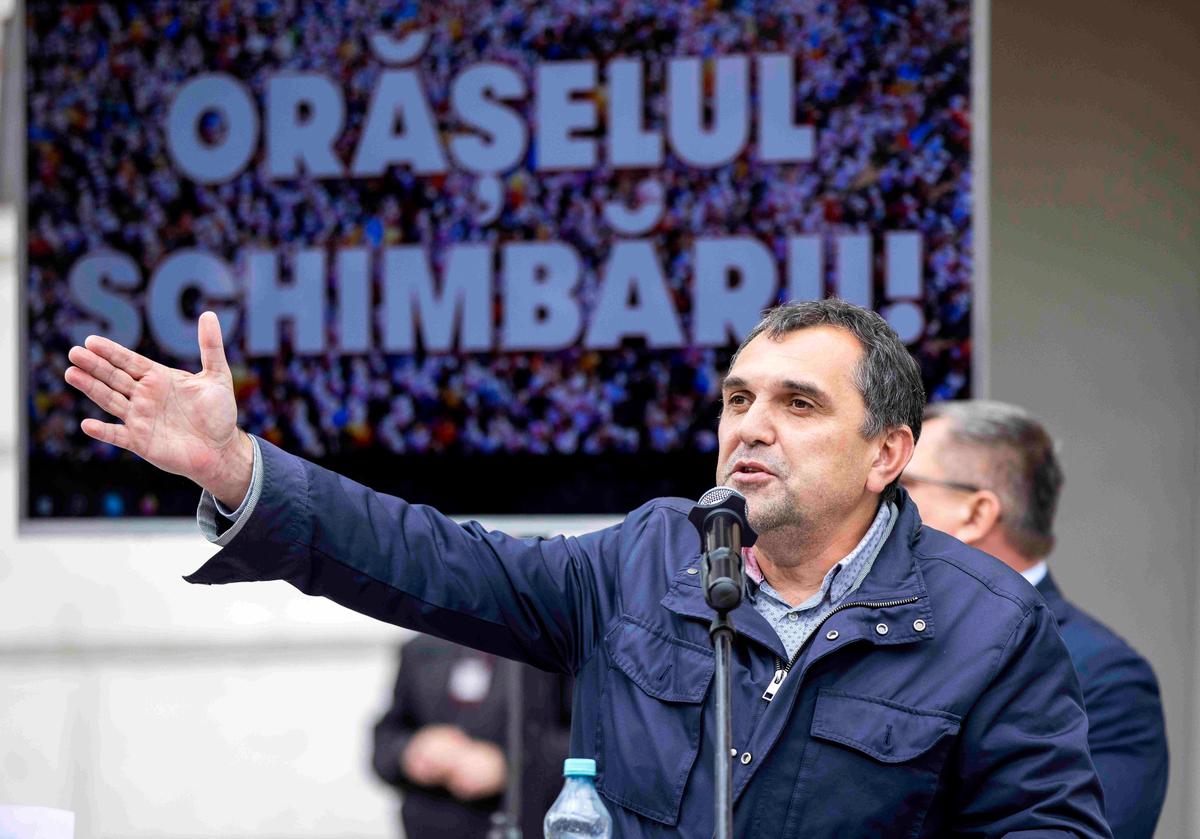
Dinu Țurcanu delivering a speech while supporters of the Shor Party protest in front of the General Prosecutor’s building in Chisinau, Moldova. Photo: EPA-EFE / DUMITRU DORU
Cash to protest
In December 2022, the Ziarul de Gardă (ZDG) independent newspaper published an investigation titled OrheiLeaks, revealing Țurcanu’s private phone conversations. In chats, Tauber and Țurcanu respectively appeared to be the main decision makers, below Ilan Shor, whom they called IM (for Ilan Mironovich) or Mr President (always in capital letters), which ZDG suggested was redolent of a Shor personality cult. Every decision, from the budget for local public lighting projects to announcing that Țurcanu had had COVID, seemed to have been discussed with Shor. Tauber, who is much closer to Shor, even stage-managed Țurcanu’s condolences to Shor on the anniversary of his father’s death.
The financial conversations revealed even more interesting details. ZDG’s award-winning investigation involved undercover reporters revealing that Shor’s demonstrators were paid cash for showing up. In OrheiLeaks, Țurcanu asks for money — referred to as “bread”, “petrol”, “car rent”, and “salary” — from Tauber, for himself and his team, including former PPCD colleague Radu Bușilă. Two days before the parliamentary elections in 2019, that led to a majority for pro-European PAS, Bușilă also texted to ask for money.
This January, Ukrainian President Volodymyr Zelensky said in Brussels that he had read intelligence reports disclosing a Russian plan to “destroy” Moldova.
President Maia Sandu confirmed the information, saying that the coup would involve foreign citizens with military or sports training who would infiltrate the protests to cause disorder. In March, the Moldovan police said they foiled a plot to create mass unrest by Russia-backed actors. Shor denies any such plans.
Merishor shops
However, Shor's protests against pro-European reformist parties in Moldova didn’t only start last year. In 2018, in one Facebook video, Shor took off his $1,500 Hermes belt and threatened to “slap” then-opposition leaders Maia Sandu and Andrei Năstase on their “bums”. (Shor said the belt was a present from his wife. Tauber was spotted wearing a similar one.) During the same period, Shor demonstrators took to the streets, blaming Sandu and Năstase for supposedly closing down Shor’s “social shops” — although they had no power then, leading extra-parliamentary parties and holding no official position.
The Merishor — which translates to little apple, a pun on the name Shor — shops were launched in 2015. The Shor Party says that they are cheap shops intended to help pensioners and the vulnerable. In order to be able to buy food there, however, one has to register with the Shor party, present ID and a pensioner card. In exchange, customers receive a card with the Shor Party logo on it.
One product cheaper than in other shops is bread, which can be found at 2MDL (or 10 cents). But other produce is sold at or above market rates. The business owning these shops, Magazine Sociale SRL, is registered as a private data operator, able to collect names, ID numbers, birth dates, phone numbers and home addresses. In 2016, Shor presidential candidate Inna Popenco was expelled from the campaign for failing to declare additional funding — that is, distributing Merishor shop cards in her meetings with voters. At the moment, according to the Shor website, there are 27 Merishor shops in Moldova.
Shor television
While the Merishor shops remain open, despite being used in electoral campaigns with undeclared funds, Shor’s TV channels were suspended in December 2022. The Exceptional Situations Committee ruled that during the state of emergency, caused by Russia’s invasion of Ukraine, TV6, OrheiTV, Primul in Moldova, Accent TV, NTV and RTR would have their licences temporarily removed “in order to protect the national space and prevent disinformation risks”. NTV and RTR are directly linked to Russian state media.
While TV6 and OrheiTV have belonged to Shor for years, the Russian retransmission TV channels Primul in Moldova and Accent TV changed ownership last autumn. Local media wrote that the swap represented a shift from the Socialists to the Shor Party. Had their licences not been suspended, Shor would have had an unprecedented monopoly over the TV and advertising market in Moldova.
In March, the Minister of Justice Sergiu Litvinenco, a member of ruling party PAS, filed a request to have the Shor Party declared “unconstitutional” for repeatedly breaking the electoral code. The Constitutional Court is still examining the case.
Shor in Gagauzia
Despite the ongoing investigations into Shor Party funding and the suspension of the largest Russian and Shor-affiliated TV channels, the party won the recent local elections in Gagauzia, an autonomous region in the south of Moldova, populated by Russified Christian Turks.
The new leader, or “Bashkan”, is Evghenia Guțul, a 37-year-old woman with no previous political experience. The mother of two said she had earned €200 over the past two years in addition to €700 in maternity benefits, while her husband earned a total of €7,000. But she also reports “a donation” of €20,000 and a gift of €5,000 to her children. Amid accusations of voter bribery and organised transport for voters in Gagauzia, prosecutors and officers of the Anti-Corruption Centre searched the houses of eight Shor Party members. But the Comrat Court of Appeal still declared the elections valid.
Last September, Shor Party representatives went to Moscow to meet Duma senior officials and negotiate a special gas price and economic deal with the Kremlin. The Russian authorities confirmed that Orhei, largely controlled by Shor, would be the only Moldovan district able to export agricultural produce to Russia while there was an embargo on Moldovan fruit.
Following in the footsteps of Orhei, Guțul announced that she wanted to resume exports to Russia and open diplomatic representation for Gagauzia in Moscow, which is illegal. In this way, Shor is trying to undermine Chisinau and turn Moldova away from its pro-European, reformist path. He is unlikely to succeed. But the battle for Moldovan hearts and minds remains tense.
Join us in rebuilding Novaya Gazeta Europe
The Russian government has banned independent media. We were forced to leave our country in order to keep doing our job, telling our readers about what is going on Russia, Ukraine and Europe.
We will continue fighting against warfare and dictatorship. We believe that freedom of speech is the most efficient antidote against tyranny. Support us financially to help us fight for peace and freedom.
By clicking the Support button, you agree to the processing of your personal data.
To cancel a regular donation, please write to [email protected]
